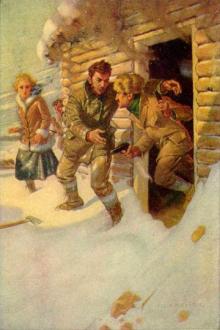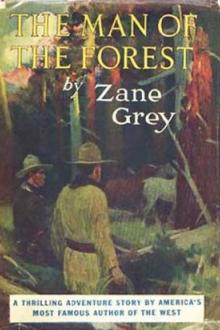Astoria; Or, Anecdotes of an Enterprise Beyond the Rocky Mountains by Irving (top romance novels .TXT) 📗

- Author: Irving
Book online «Astoria; Or, Anecdotes of an Enterprise Beyond the Rocky Mountains by Irving (top romance novels .TXT) 📗». Author Irving
The bands of the culprits were then removed, and they lost no time in taking their departure, still under the influence of abject terror, and scarcely crediting their senses that they had escaped the merited punishment of their offenses.
The country on each side of the river now began to assume a different character. The hills, and cliffs, and forests disappeared; vast sandy plains, scantily clothed here and there with short tufts of grass, parched by the summer sun, stretched far away to the north and south. The river was occasionally obstructed with rocks and rapids, but often there were smooth, placid intervals, where the current was gentle, and the boatmen were enabled to lighten their labors with the assistance of the sail.
The natives in this part of the river resided entirely on the northern side. They were hunters, as well as fishermen, and had horses in plenty. Some of these were purchased by the party, as provisions, and killed on the spot, though they occasionally found a difficulty in procuring fuel wherewith to cook them. One of the greatest dangers that beset the travellers in this part of their expedition, was the vast number of rattlesnakes which infested the rocks about the rapids and portages, and on which the men were in danger of treading. They were often found, too, in quantities about the encampments. In one place, a nest of them lay coiled together, basking in the sun. Several guns loaded with shot were discharged at them, and thirty-seven killed and wounded. To prevent any unwelcome visits from them in the night, tobacco was occasionally strewed around the tents, a weed for which they have a very proper abhorrence.
On the 28th of July the travellers arrived at the mouth of the Wallah-Wallah, a bright, clear stream, about six feet deep, and fifty-five yards wide, which flows rapidly over a bed of sand and gravel, and throws itself into the Columbia, a few miles below Lewis River. Here the combined parties that had thus far voyaged together were to separate, each for its particular destination.
On the banks of the Wallah-Wallah lived the hospitable tribe of the same name who had succored Mr. Crooks and John Day in the time of their extremity. No sooner did they hear of the arrival of the party, than they hastened to greet them. They built a great bonfire on the bank of the river, before the camp, and men and women danced round it to the cadence of their songs, in which they sang the praises of the white men, and welcomed them to their country.
On the following day a traffic was commenced, to procure horses for such of the party as intended to proceed by land. The Wallah-Wallahs are an equestrian tribe. The equipments of their horses were rude and inconvenient. High saddles, roughly made of deer skin, stuffed with hair, which chafe the horse’s back and leave it raw; wooden stirrups, with a thong of raw hide wrapped round them; and for bridles they have cords of twisted horse-hair, which they tie round the under jaw. They are, like most Indians, bold but hard riders, and when on horseback gallop about the most dangerous places, without fear for themselves, or pity for their steeds.
From these people Mr. Stuart purchased twenty horses for his party; some for the saddle, and others to transport the baggage. He was fortunate in procuring a noble animal for his own use, which was praised by the Indians for its great speed and bottom, and a high price set upon it. No people understand better the value of a horse than these equestrian tribes; and nowhere is speed a greater requisite, as they frequently engage in the chase of the antelope, one of the fleetest of animals. Even after the Indian who sold this boasted horse to Mr. Stuart had concluded his bargain, he lingered about the animal, seeming loth to part from him, and to be sorry for what he had done.
A day or two were employed by Mr. Stuart in arranging packages and pack-saddles, and making other preparations for his long and arduous journey. His party, by the loss of John Day, was now reduced to six, a small number for such an expedition. They were young men, however, full of courage, health, and good spirits, and stimulated rather than appalled by danger.
On the morning of the 31st of July, all preparations being concluded, Mr. Stuart and his little band mounted their steeds and took a farewell of their fellow-travellers, who gave them three hearty cheers as they set out on their dangerous journey. The course they took was to the southeast, towards the fated region of the Snake River. At an immense distance rose a chain of craggy mountains, which they would have to traverse; they were the same among which the travellers had experienced such sufferings from cold during the preceding winter, and from their azure tints, when seen at a distance, had received the name of the Blue Mountains.
CHAPTER XLIV. Route of Mr. Stuart—Dreary Wilds.—Thirsty Travelling.-A Grove and Streamlet.—The Blue Mountains.—A Fertile Plain With Rivulets.—Sulphur Spring—Route Along Snake River— Rumors of White Men.—The Snake and His Horse.—A Snake Guide.-A Midnight Decampment.—Unexpected Meeting With Old Comrades—Story of Trappers’ Hardships—Salmon Falls—A Great Fishery.—Mode of Spearing Salmon.—Arrival at the Caldron Linn.—State of the Caches.—New Resolution of the Three Kentucky Trappers.
IN retracing the route which had proved so disastrous to Mr. Hunt’s party during the preceding winter, Mr. Stuart had trusted, in the present more favorable season, to find easy travelling and abundant supplies. On these great wastes and wilds, however, each season has its peculiar hardships. The travellers had not proceeded far, before they found themselves among naked and arid hills, with a soil composed of sand and clay, baked and brittle, that to all appearance had never been visited by the dews of heaven.
Not a spring, or pool, or running stream was to be seen; the sunburnt country was seamed and cut up by dry ravines, the beds of winter torrents, serving only to balk the hopes of man and beast with the sight of dusty channels, where water had once poured along in floods.
For a long summer day they continued onward without halting, a burning sky above their heads, a parched desert beneath their feet, with just wind enough to raise the light sand from the knolls, and envelop them in stifling clouds. The sufferings from thirst became intense; a fine young dog, their only companion of the kind, gave out, and expired. Evening drew on without any prospect of relief, and they were almost reduced to despair, when they descried something that looked like a fringe of forest along the horizon. All were inspired with new hope, for they knew that on these arid wastes, in the neighborhood of trees, there is always water.
They now quickened their pace; the horses seemed to understand their motives, and to partake of their anticipations; for, though before almost ready to give out, they now required neither whip nor spur. With all their exertions, it was late in the night before they drew near to the trees. As they approached, they heard, with transport, the rippling





Comments (0)